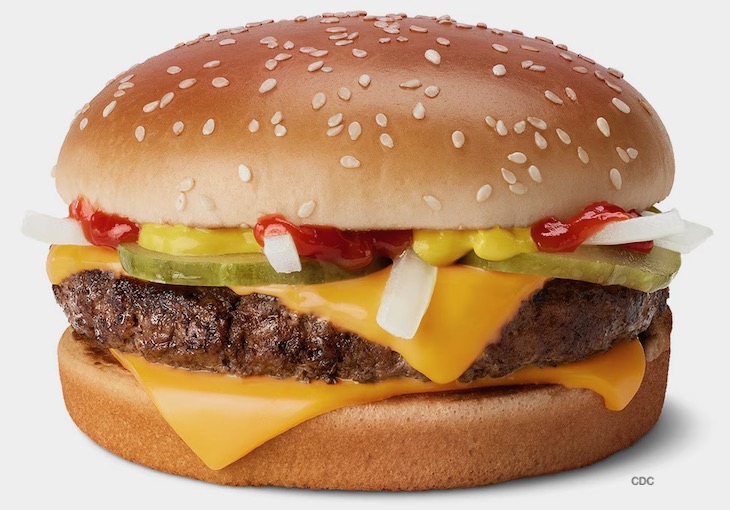The McDonald’s onions E. coli O157:H7 outbreak has sickened at least 104 people, according to the FDA. Thirty-four people have been hospitalized, and four people have developed hemolytic uremic syndrome (HUS), which is a type of kidney failure. One person who lived in Colorado has died.

The case count is: Colorado (30), Iowa (1), Kansas (3), Michigan (2), Missouri (8), Montana (19), Nebraska (13), New Mexico (10), Oregon (1), Utah (8), Washington (1), Wisconsin (1), and Wyoming (6). Illnesses onset dates range from September 27, 2024 to October 21, 2024. The patient age range is from 1 to 88 years.
The FDA, the Colorado Department of Agriculture, and the Colorado Department of Public Health and Environment have collected onion and environmental samples from McDonald’s stores, distribution centers, and firms of interest. At this time, one FDA sample of the recalled onions has tested positive for E. coli, but it is a non-O157 Shiga taxi-producing E. coli and does not match the outbreak strain or any other clinical illnesses.
Whole genome sequencing showed that the sample is positive for E. coli O168:H8 and contains the Shiga toxin gene stx2a. More samples results are pending.
Epidemiological and traceback evidence links the recalled onions to the outbreak. Of people who talked to investigators, 99% said they ate at McDonald’s before getting sick, and 84% of patients who remembered what they ate said the menu item they ordered, including Quartet Pounder burgers, contained fresh slivered onions. Taylor Farms provided the fresh onions to the McDonald’s restaurants in question.
Symptoms of an E. coli O157:H7 illness include fever, possible nausea and vomiting, stomach pain, severe abdominal cramps, and diarrhea that is likely to be bloody. Symptoms of HUS include little or no urine output, easy bruising, lethargy, and pale skin.
Both an E. coli infection and HUS can be life-threatening. If you or a member of your family is experiencing these symptoms, see a doctor. You can be part of this deadly McDonald’s onions E. coli O157:H7 outbreak

If you have been sickened with a food poisoning infection, please contact our experienced attorneys for help with a possible lawsuit at 1-888-377-8900 or text us at 612-261-0856. Our firm represents clients in lawsuits against grocery stores, restaurants, and food processors, and families in wrongful death cases.




